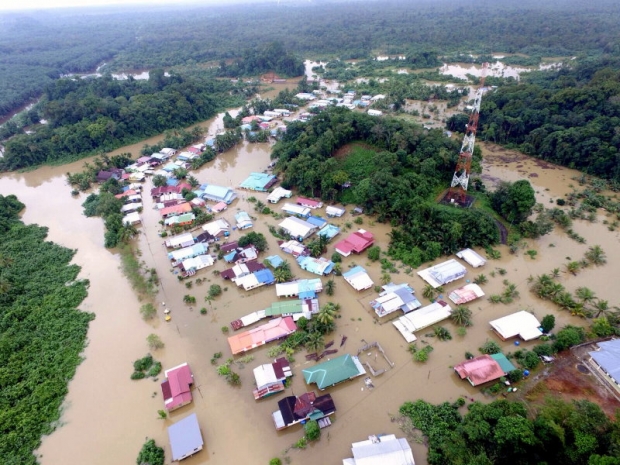
BANGKOK, Thailand:Over the last 12 months, stalls have been opening up across southern Thailand to sell ketum leaves, syrups, and mixed drinks. In Thailand ketum is called kratom.
Kratom is now sold on every street corner, and in between, across all southern Thai towns. These stalls are very cheap to open, usually in front of homes, or shops to sell to passers-by.
In 2021 Thailand updated the Narcotics Act (No.8) 201, which removed kratom from the list of prohibited substances, where all offences for cultivating, processing, and selling were eliminated. This was published in the Government Gazette, making it law in August 2022.
Kratom, or its scientific name Mitragyna speciosa (Korth.) is a large forest tree found in northern Malaysia and southern Thailand. The tree is adaptable to cultivation, and takes around two to three years to produce marketable leaves. The leaves have been used by locals in both southern Thailand and northern Malaysia for pain relief for hundreds of years. The leaves either chewed or boiled into a tea or syrup also provides some euphoric effects. Others claim kratom makes them energetic. Ethnobotanical data records that kratom was used as a substitute for opium, suppressing withdrawal symptoms. Observation and research data indicates the use of kratom is additive.
Kratom is sought after in southern Thailand by farmers and rubber tappers, food delivery motorcyclists, lori and bus drivers, small market traders, and manual workers. Kratom syrup is usually mixed with coffee, or Coca Cola.
Kratom retailing is now a choice start-up retailing business, due to the low set up costs, ability to sell from home, or set up a stall along the side of the road. The setting up of kratom stalls now out paces coffee stalls and kueh stalls selling breakfast items.
Its very difficult to estimate the number of kratom stalls that now exist. More are being set up every-day. Within the Hat Yai area and access roads alone, there are probably in excess of 500 stalls. This would run into many thousands across southern Thailand. This is amazing, considering just over six months ago there was no one selling kratom leaves of syrups openly.
There is probably an oversupply of stalls as kratom stalls are still being opened up. The ones that succeed are those which are open at night and placed in high traffic locations, with easy parking.
Kratom, unlike marijuana is thriving ion southern Thailand. Marijuana gained much more publicity than kratom. People rushed out to buy marijuana plants, restaurants utilizing marijuana opened for business, as did coffee shops. However, this popularity only lasted a few months, and has been taken over by kratom as the drug of choice in the south.
The Malaysian connection
As from last year, kratom leaves could be imported into Thailand legally, without any license requirements from the Narcotics Control Board (NCB). Most of the kratom leaves sold and used to make syrups in Thailand come from Malaysia, cultivated in Kelantan, northern Perak, Kedah, and Perlis. Even a very well known politician in Perlis cultivates nearly 100 acres of kratom. This practice continues unabated, even when Ketum is considered a narcotic in Malaysia. The alkaloid mitragynine contained in ketum leaves is categorized as a psychotropic substance under the Poisons Act 1952. Police have long been cutting down ketum trees found growing in FELDA reserves in Perlis. However, under the current laws, exporting ketum is illegal but planting ketum is perfectly fine. This makes it almost impossible for the police to stop the flow of ketum to our neighbouring countries.
However, due to the growing demand from Thailand, Malaysian farmers keep cultivating ketum and exporting their leaves to Thailand. Ketum is a bonanza crop for Malaysian farmers. One ketum tree can produce 10kg of leaves with revenue of RM200 every two weeks. Hence, the smuggling of ketum leaves is on an upward trend. Some estimate the value of exporting ketum leaves to be as high as RM 180m million per annum.
Malaysian kratom leaves are considered the best quality in southern Thailand, where the alkaloid content is higher than local varieties.
The kratom market will keep growing in Thailand, as central, northern, and eastern Thailand are yet to catch on to this opportunity.
So far there are few signs the government will walk back on the decriminalization of kratom, as they are trying to do with marijuana. Kratom syrup is now a commodity item, particularly among those undertaking manual jobs. The attraction to this product is its addictiveness. The attraction to starting up a kratom retail stall is the extremely low capital requirements.
In Malaysia, there has been growing support for the idea of legalising the cultivation of ketum for medical purposes. In April 2022, former Deputy Communications and Multimedia Minister Datuk Zahidi Zainul Abidin said that the Cabinet had given the “green light” on this matter. On 18 May 2022, Kedah’s State Economic Planning Division officially completed its proposal to seek federal approval to legalise the export of ketum. However, the government changed in November 2022 and there has been silence on the matter.








0 Comments
LEAVE A REPLY
Your email address will not be published